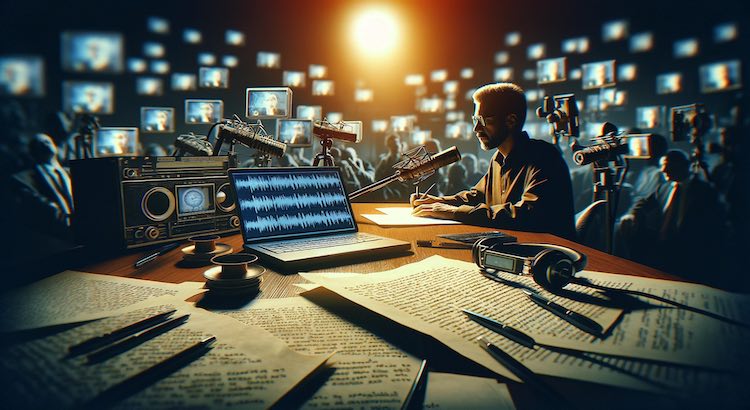The Vital Role of Audio Transcription Services in Investigative Journalism
Investigative journalism uncovers facts that often lie hidden from public view. Journalists rely on in-depth interviews and extensive research to produce stories that hold people accountable. A key tool in this process is audio transcription services, which transform spoken words from interviews, recordings, or undercover conversations into accurate written records. These services are not just convenient—they are essential in making sure stories are accurate, reliable, and clear for everyone involved.
Why Accuracy in Transcription Matters for Journalists
Accuracy is a core value in journalism, especially in investigative work where even the smallest mistake can lead to big problems. Transcription services help reporters make sure they capture every word spoken. This matters because:
- Exact quotes protect against accusations of misquoting or misrepresentation.
- Precise transcripts build trust with sources and readers.
- Errors can impact the safety of sources and the credibility of the story.
A study has shown that 61% of journalists ranked accuracy as their top priority when creating content (Reuters Institute, 2022).
How Transcription Services Boost Efficiency and Access
Investigative journalists handle large volumes of audio data. Listeners can spend hours searching for one important detail in a recording. With professional transcription services, searching is faster and easier.
- Text is searchable—find quotes or facts quickly using keywords.
- Transcripts help with teamwork—shareable files enable collaboration.
- Save time—no need to replay long recordings over and over.
Recent data reveals that using transcripts can reduce research time by up to 60% for journalists (Pew Research Center, 2023).
Make Audio Usable Instantly
- Automated transcription tools offer even faster turnaround times.
- Subscription services allow journalists to process bulk audio affordably.
- Consider automated transcription or an AI transcription subscription for regular needs.
Protecting Source Anonymity and Upholding Security
Investigative journalism often involves confidential sources who risk their safety to share information. Digital audio files can be risky if handled carelessly. Transcription services add a layer of security by providing:
- Written records that obscure the original voice or identifying details.
- Confidential handling by professionals with strict non-disclosure agreements.
- Options to redact names or sensitive parts before sharing or publishing.
A 2021 report noted that over 75% of investigative journalists consider source protection as their primary ethical concern (Center for Media and Democracy, 2021).
Meeting Legal and Ethical Responsibilities
Legal and ethical standards shape how news organizations report stories. Transcripts serve as verifiable records, which are vital for several reasons:
- Fact-checking—editors and legal teams can compare transcripts with audio evidence.
- Proof of accuracy in case of disputes or claims of libel or defamation.
- Documentation for legal proceedings, if required.
By using transcription proofreading services, journalists further ensure their transcripts meet the highest standards of accuracy and integrity.
How Transcription Enriches Storytelling
Want a story that connects with readers? Transcripts can help make that happen by:
- Allowing journalists to spot important emotions, pauses, or inflections they might miss otherwise.
- Helping writers identify patterns, contradictions, or recurring themes for a stronger narrative.
- Making it easy to pull the most powerful or meaningful quotes for the article.
According to a 2022 journalism survey, reporters with access to full transcripts said their stories were 40% more detailed and engaging (Nieman Lab, 2022).
Additional Tools for Investigative Journalists
- For video reports, closed caption services and subtitling services improve accessibility and clarity.
- When working in multiple languages, text translation services and audio translation expand your reach.
Budget-conscious newsrooms can find transparent transcription pricing and captioning services pricing with leading providers.
Conclusion: Supporting Journalistic Integrity
Accurate audio transcription services are an essential tool for investigative journalists. They secure accurate records, help protect sources, and keep the entire team on the same page. Transcripts back up legal claims and contribute to strong, evidence-based stories. These tools help journalists stay efficient, responsible, and clear as they pursue the facts and uncover the truth.
If you’re an investigative journalist or media outlet looking to enhance your workflow and story credibility, GoTranscript offers a comprehensive suite of solutions. From transcription services to captioning, affordable pricing, and fast ordering, GoTranscript empowers journalists to meet their highest standards every time.



















 Verified Order
Verified Order